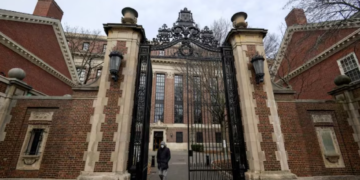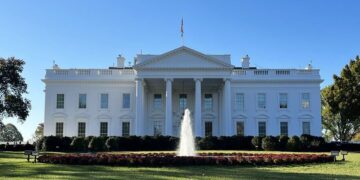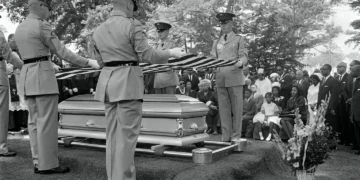FIGHTracism. Img source: www.unodc.org/
May 15, 2024 Story by: Editor
Patrice Willoughby’s path to service was charted early on. Raised in Ohio by parents deeply involved in politics and social justice, she was surrounded by the ethos of helping others. Her parents were active members of the NAACP, engaged in their church, and frequently worked on political campaigns.
“We always did things for people who were less fortunate than we were,” Willoughby shared with The Hill. “They always taught me that it’s your responsibility in society to extend a hand and to help people in your community.”
Today, Willoughby serves as the senior vice president of global policy and impact at the NAACP. With a career spanning two decades, she has held positions in the Obama administration and served as the executive director of the Congressional Black Caucus. Her work is driven by the values instilled by her parents, focusing on uplifting underserved and marginalized communities.
Influenced by Her Father
In 1969, Willoughby’s family moved to the Cleveland suburbs, a transition that significantly influenced her. In a predominantly white elementary school, she had only one Black friend and one Jewish friend until the third grade.
“Over the years, I observed having white friends, having some friends who had more financial resources, and it made me think, why is that? Why does that community look one way and the community where I live look another way? That’s always framed my understanding of the derivation of power.”
Her father, Rupert, deeply concerned about the Black community’s economics, often discussed topics like housing, credit, and homeownership at the dinner table.
Willoughby carried these lessons to Case Western Reserve University, earning a Bachelor of Arts in Music. She then pursued a master’s in arts administration and nonprofit management at the University of Cincinnati.
A Career Rooted in Advocacy
After graduation, while raising funds for CEOs, Willoughby was reminded of her father’s teachings.
“Being in the room with them, supporting those fundraising efforts, was like going to school and understanding the intersection of money institutions and institutional racism and the link between power, money, economic access, and political access,” she explained.
This realization led her to law school at the University of Wisconsin-Madison, where she delved into generational wealth, the racial wealth gap, and how property taxes fund school districts, impacting education.
Navigating Political Waters
In 2003, Willoughby began working as chief of staff and counsel to Rep. Stephanie Tubbs Jones (D-Ohio). She likened the experience to learning from an older sister.
“We were very close. She taught me so much. She wanted to be surrounded by people who would add to her understanding of the world, and she wasn’t afraid of vigorous dialogue. She wasn’t afraid of disagreeing. She always led with compassion. She led with love.”
Willoughby was especially proud of their work on uterine fibroids, advocating for increased federal funding. Although the bill did not pass, their efforts led to a lasting, bipartisan legacy in Congress, with Sens. Cory Booker (D-N.J.) and Shelley Moore Capito (R-W.Va.) reintroducing related legislation.
After Tubbs Jones’s sudden death in 2008, Willoughby transitioned to the Congressional Black Caucus under Rep. Barbara Lee (D-Calif.), during a period marked by economic turmoil and significant legislative efforts like the Affordable Care Act.
“It’s thrilling, it’s exhilarating, but it’s also exhausting,” Willoughby said of her time on Capitol Hill.
A Shift to the Executive Branch
Willoughby then joined the Obama administration. “I had wanted to serve President Obama,” she said. Despite occasional disagreements, the relationship remained respectful and constructive.
Current Role and Future Vision
Now at the NAACP, Willoughby started in February 2022, after the murder of George Floyd spurred her to take action. Her personal experience with law enforcement, being unjustly detained in Wisconsin, further fueled her commitment.
Willoughby remains dedicated to passing the John Lewis Voting Rights Advancement Act and achieving economic equality. She underscores the integral relationship between money and politics.
“Money and politics are absolutely integrated,” she said. Economic self-sufficiency, or the lack thereof, drives many people’s perceptions and reactions to societal changes.
“We have a job to do now,” Willoughby emphasized. “You cannot and we cannot in this country have or allow the noise of polarization to define how we view society. We have to work toward envisioning the society that we want to have.” Source: The Hill

















